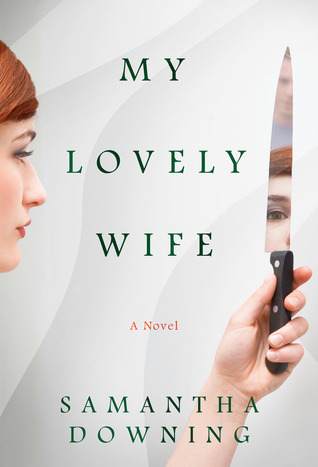“The Missing Years”
Written by Lexie Elliot
Review written by Diana
Iozzia
“The Missing Years” is
Lexie Elliot’s second thriller, following her fantastic debut, “The French Girl”.
Her second book follows suspicious but clever Ailsa, who has inherited half a house,
the other half owned by her father. Her father disappeared 27 years ago. When Ailsa
and her sister Carrie move into ‘The Manse’, the two become very uncomfortable,
feeling a foreboding presence coming from the house.
Ailsa sees neighbor Jamie
in her house in the middle of the night and becomes frightened. He gives a
strange excuse that he didn’t realize the house was occupied; he was looking
for his sister, who often sneaks into the house. Ailsa and Carrie become
friends with Jamie, his sister, and a group of other people who all know about
Ailsa’s father.
We have two mysteries:
what ever happened to their father? Also, what is this mystery behind the
creepy house and the odd neighbors? This book brought me back to many different
types of books, films, and tv shows I’ve enjoyed over the years. Specifically,
I felt reminiscent of “The Amityville Horror”, the “Welcome to Dead House” episode
from Goosebumps (ha, ha), “Big Little Lies”, “The Haunting of Hill House”, “Hinterland”,
and “I Am the Pretty Thing that Lives in the House”. I also enjoyed that “woman
comes back to eerie hometown” vibe that is present in two of my favorite
thrillers, “The Roanoke Girls” and “Sharp Objects”.
For the most part, I was
a bit disappointed with this book. Not devastated, but I felt that this completely
paled in comparison to Elliot’s first book. Elliot’s main brilliant writing
elements still rang true, but I felt that the plot and premise were just not
intriguing enough. I enjoy her character building, the ensemble cast of characters,
realistic dialogue, thorough and visual detail, and brilliant climaxes. Elliot
writes a spot-on climax, chilling readers deep to the bone. Readers can barely
keep their eyes open and stop themselves from shuddering, waiting to see the
villain’s next move. As mentioned earlier, Elliot’s characters are always excellently
written. Some characters are more interesting and more necessary to the story
than others, but they all weave their way in. Her plots are thoroughly developed,
but I feel that the characters really complete the book.
I loved “The Missing
Years” and “The French Girl” for weaving past and present story elements
together, without using flashbacks. We are told about the past, but not through
detailed scenes. I like that the books feel more like diaries than full of
intense scenes one after another. I feel that some may feel this is a slow
pace, but I disagree.
There are two aspects
that I really disliked, but I think I can still push past them. Before every
chapter, there is a few paragraphs giving a scenario in which the father could
be alive. Some of them include him living in strange marriages or odd
countries, but it felt really out of place. I mean, every chapter. The
scenarios become darker as the book proceeds, but I felt that they could have
been taking out, without diminishing the book in any way. In addition, the
second point of dissatisfaction was the Scottish dialect. I understand the want
for an American audience to feel more engaged in the story, to make it seem
more realistic. In my personal perspective, my fiancé is from England, near Scotland,
so when I often visit him, I am already familiar with the accent, so I can read
it in my head. Because I visit England often and plan to move there, I love the
English / Scottish tidbits. They feel special for me. There are some English things
referenced, but I still felt the book was heavily Americanized, sans the
dialect. For example, sentences read “I dinnae ken if I want to go,” instead of
“I don’t know...” I felt that this jumped me out of the book, leaving me less engaged,
because it annoyed me. I’m sure this was done with the author’s intent, but I
felt it too distracting, ruining some of my enjoyment.
I find this book hard to
rate, because I liked half of the aspects of it. I just did not love it. I
cannot wait to read more by Lexie Elliot, but for now, I’ll just re-read “The
French Girl”. I recommend this book for the characters and the prose, but just
not the plot. I really did enjoy the climax, so if that makes or breaks a book
for you, I hope you’ll like it too.
I received this book for
free from the publisher, in exchange for reading and reviewing it. Thank you to
Berkley Publishing for the opportunity.











